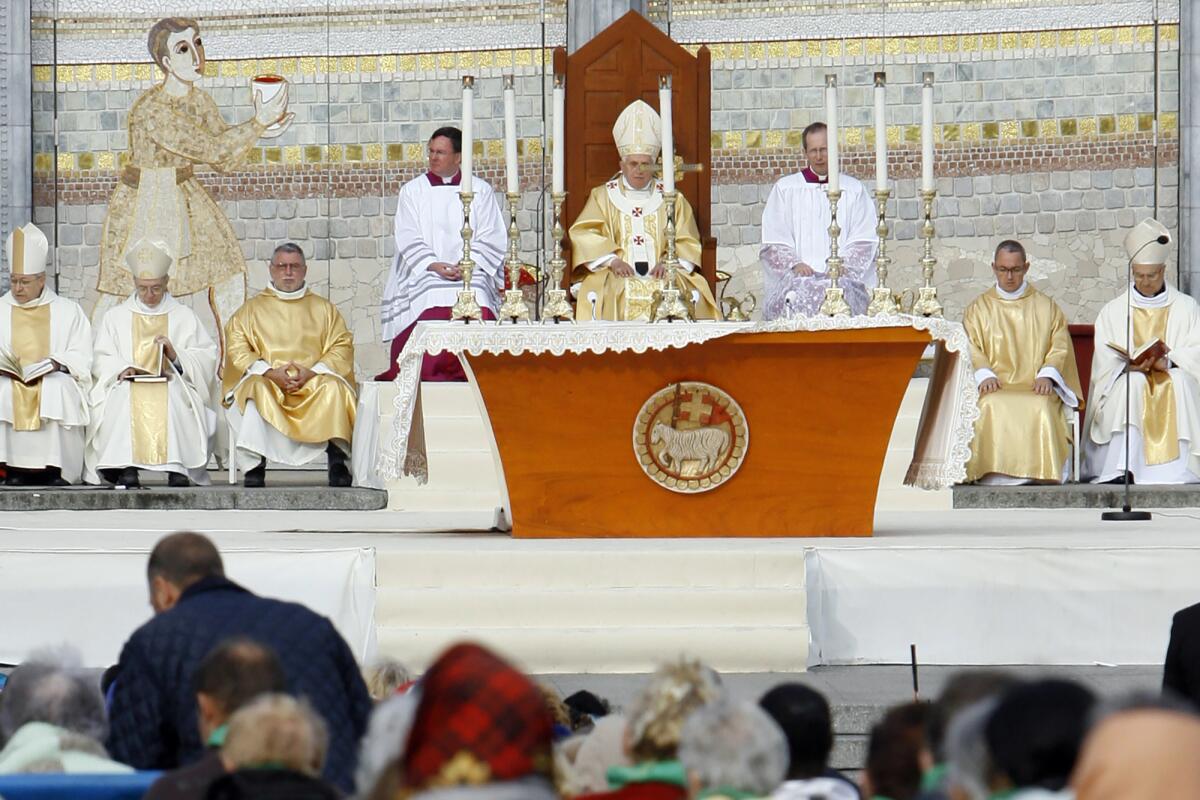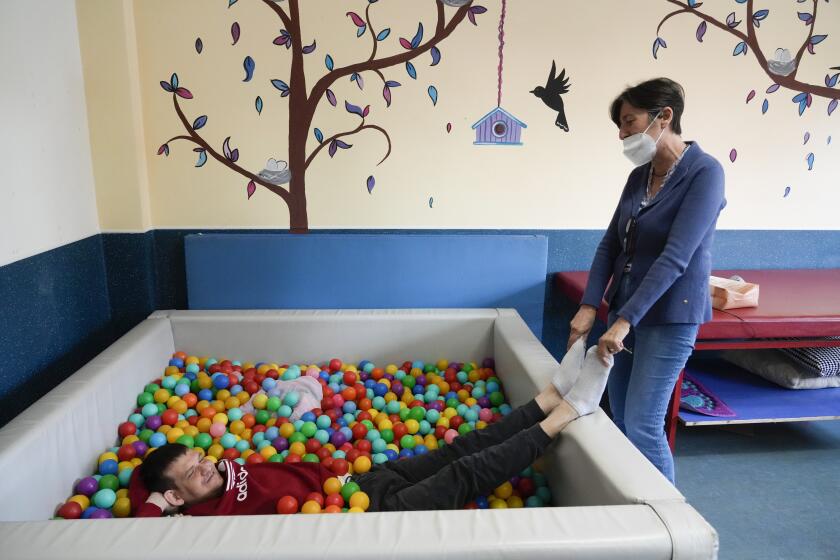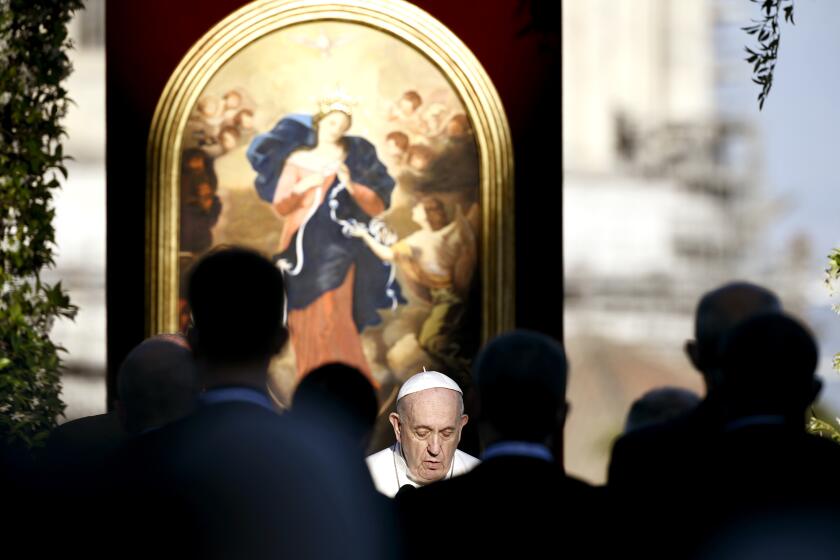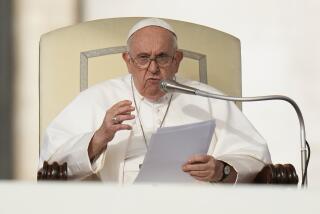Lourdes shrine reviewing mosaics after Jesuit abuse claims

- Share via
ROME — Officials at the Catholic shrine in Lourdes are studying what to do with one of the French sanctuary’s most famous but now controversial attractions: mosaics by a Jesuit artist who has been sanctioned by the Vatican and his religious order for sexually, spiritually and psychologically abusing women.
The Rev. Marko Ivan Rupnik designed the facade of one of the three basilicas at Lourdes with a series of mosaics in 2008 to mark the 150th anniversary of the Marian apparitions that turned the shrine in southwest France into one of the world’s biggest pilgrimage sites, attracting around 3 million visitors a year.
In December, the Jesuits revealed that Rupnik had been declared excommunicated by the Vatican in 2020 for committing one of the worst crimes in church law — using the confessional to absolve a woman with whom he had engaged in sexual activity — and had also been accused by nine women of related sexual, spiritual and psychological misconduct in the 1980s.
The Vatican’s sex abuse office, which is headed by Jesuits, decided their claims were too old to prosecute. Amid an outcry and testimony from 15 more people, the Jesuits in February announced a new internal canonical inquiry while toughening sanctions against Rupnik, including preventing him from continuing his artistic activity, since that was presumably where some of the abuse originated.
An internationally lauded federation that provides community care for people with intellectual disabilities is grappling with revelations that its late founder perverted Catholic doctrine to justify his sexual abuse of women.
Aside from posing questions about how the Jesuits and the Vatican handled the allegations, the Rupnik scandal has prompted a broader question about what to do with his art, since his mosaics decorate important basilicas, shrines, chapels and churches around the globe, including one of the chapels inside the Apostolic Palace.
On Friday, Bishop Jean-Marc Micas, whose diocese includes Lourdes, announced the creation of a study group to consider what to do with the Basilica of the Rosary mosaics, placing the needs of abuse survivors first. Nothing is being ruled out, he said in a statement.
“Lourdes is a place where many victims come … to seek consolation and healing. Their distress is great in front of the Rev. Rupnik’s mosaics in this same place: We cannot ignore it,” he said in a statement.
In an earlier interview with French Catholic La Vie, Micas said he and the shrine had received letters from abuse victims from around the world seeking a “gesture” from Lourdes. They described Rupnik’s mosaics there as an additional source of pain as they seek healing from their abuse.
“If this place, by displaying these works, increases the suffering of people who come there to be healed, this is not possible,” Micas told La Vie.
The study group includes the bishop, the rector of the shrine, a survivor of abuse, an expert in sacred art and a psychotherapist. They will come up with the elements necessary to decide what to do with the mosaics, with all options on the table, the statement said.
Pope Francis has changed church law to explicitly criminalize the sexual abuse of adults by priests.
The status of the Slovenian-born Rupnik’s status remains somewhat in limbo as the Jesuits’ canonical investigation plays out, even as they have received more complaints against him, Rupnik’s superior, the Rev. Johan Verschueren, told the Associated Press in an email Friday.
“Every week one or two new testimonies knock at our door,” he said. “We get, ever more, a clear and a comprehensive view of what happened in the past and what is the real nature and size of the case.”
While Lourdes is the first major basilica to publicly announce a review of Rupnik’s artistic works, other church entities have distanced themselves. The diocese of Versailles, which is home to a church decorated with Rupnik mosaics, terminated all collaboration with him in December.
Recently, the religious publisher San Paolo removed Rupnik’s books from prominent display at its store near the Vatican, though his coffee table books, calendars and books on spirituality are available on the website of the Centro Aletti art studio and ecumenical center in Rome that Rupnik founded.
More to Read
Sign up for Essential California
The most important California stories and recommendations in your inbox every morning.
You may occasionally receive promotional content from the Los Angeles Times.











